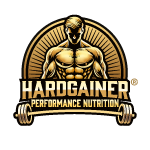MYTH #8: You need soreness to grow!
Muscle soreness (DOMS) is a feeling, not a result. Growth is built through SRA, mechanical tension and planned progression — not pain-chasing.
Notice
🪓 The Myth
“No soreness = wasted session.” — False. DOMS correlates poorly with hypertrophy and strongly with novelty & excess (new exercises, eccentric bias, too much volume, technique drift). Chronic DOMS lowers quality, frequency and thus your weekly training stimulus.
🔍 Why this myth persists
- Pain = work bias: If it hurts, it must work — not necessarily.
- Beginner effect: Early DOMS is almost guaranteed → mistaken as a quality badge.
- Social narratives: “No pain, no gain” stripped of SRA, RIR & progression context.
👉 Reality: Sufficient volume (MEV), high tension and steady progression drive hypertrophy — not inflammation.
📊 The Facts
- DOMS is variable: Depends on novelty, eccentric load & volume — not a direct growth gauge.
- MPS & SRA: MPS rises ~24–48 h post-stimulus; recovery along the SRA curve enables adaptation.
- Quality over pain: Clean reps near failure (RIR 1–2), stable technique, RPE-guided effort.
- Consistency beats peaks: 4–6 week progression → deload; sleep (Myth #6) & Food Hygiene are levers.
🧬 DOMS & Muscle Protein Synthesis
DOMS stems from microtrauma and inflammation. Net growth depends on the balance of MPS vs. MPB. Heavy DOMS can cap technique, performance and frequency — reducing weekly adaptation.
Core takeaway: Training without soreness — with high tension, clean technique and progression — can be more efficient for long-term gains.
🧭 Decision Tree: What to do with DOMS?
- Light DOMS: Train as planned; focus on technique & tension.
- Moderate DOMS + performance ↓: Keep volume, slightly reduce eccentric tempo; increase sleep & carbs around the session.
- Severe DOMS / movement limited: Push top sets; do a technique/pump session instead — no hero mode.
🧪 Practice: DOMS-smart training
- Dose volume: Start at MEV, increase gradually; big jumps → unnecessary DOMS.
- Tension & proximity to failure: Main lifts RIR 1–2; assistance RIR 2–3; controlled eccentrics over reckless negatives.
- Frequency & planning: 2×/muscle/week, avoid stacking hard sessions; deloads cyclically.
- Recovery basics: 7–9 h sleep, 8–10k steps, easy LISS, protein 1.8–2.2 g/kg, carbs around key sessions.
- Tracking: Strength, reps, technique, subjective recovery (1–5) — not a “pain scale” as the prime metric.
🧱 Hardgainer Template: Weekly architecture
Frequency 2×/muscle with rotating emphasis (tension → volume):
- Mon: Push (heavy, RIR 1–2)
- Tue: Pull (moderate, RIR 2)
- Wed: LISS + mobility
- Thu: Lower (heavy, RIR 1–2)
- Fri: Push (moderate, RIR 2–3)
- Sat: Pull + lower accessories (RIR 2–3)
- Sun: Rest / walks / sleep catch-up
Progression: Double progression (reps → load), 4–6-week cycles, then deload (-30–40% volume).
Exercise changes: Only for plateau/pain — otherwise keep for measurability.
Eccentric: Controlled (2–3 s), no destructive “negatives” as default.
🍽️ Nutrition & DOMS management
- Protein: 1.8–2.2 g/kg, leucine trigger per meal (see leucine threshold & MPS).
- Carbs: Time around key sessions (pre/intra/post), see Food Hygiene.
- Hydration & electrolytes: LISS + fluids accelerate restoration.
🚫 Common mistakes (and better alternatives)
- Chasing DOMS: Fix: prioritize tension & progression; observe DOMS, don’t force it.
- Over-eccentric focus: Fix: controlled tempo over destructive negatives.
- Weekly chaos: Fix: consistent exercises & measurability.
📚 Evidence base (selection, PubMed)
- Proske & Morgan (2001): Eccentric work → microtrauma & DOMS; pain magnitude ≠ proportional hypertrophy. PubMed · PMC
- Hyldahl & Hubal (2014): Review on eccentric loading & inflammatory response; adaptation ↓DOMS without loss of progress. PubMed
- Damas et al. (2016): Early CSA increases partly edema-driven (damage), not pure hypertrophy; DOMS/damage confound early markers. PubMed
- Schoenfeld (2010): Hypertrophy mechanisms: mechanical tension, (moderate) damage, metabolic stress — progression is the lever. PubMed
- Proske (2005) – review: Mechanical events triggering muscle damage & DOMS. PubMed
- Yu et al. (2002): DOMS after eccentric contractions ≠ lasting functional loss — pain ≠ linear performance metric. PubMed
- Lim et al. (2022): Evidence-based perspectives on RT-induced hypertrophy (overview). PMC
❓ FAQ: quick & clear
“Is light DOMS okay?” Yes — tolerable & functional. Heavy DOMS limits quality & frequency.
“No DOMS = no stimulus?” False. The stimulus shows in performance trends, not pain intensity.
“Does stretching fix DOMS?” Barely. Better: sleep, steps, easy LISS, nutrition on point.
⚡ Conclusion
Soreness is a by-product, not the goal. Train for tension + progression, respect SRA, keep recovery strong — and you’ll grow consistently and resiliently.
MYTH: “You need soreness to grow!”
FACT: DOMS ≠ progress — quality & progression drive growth.
REMEMBER: Soreness is not a success metric — it’s a side-effect of stress. Growth happens when SRA, technique and progression are in balance — not when you annihilate yourself.

